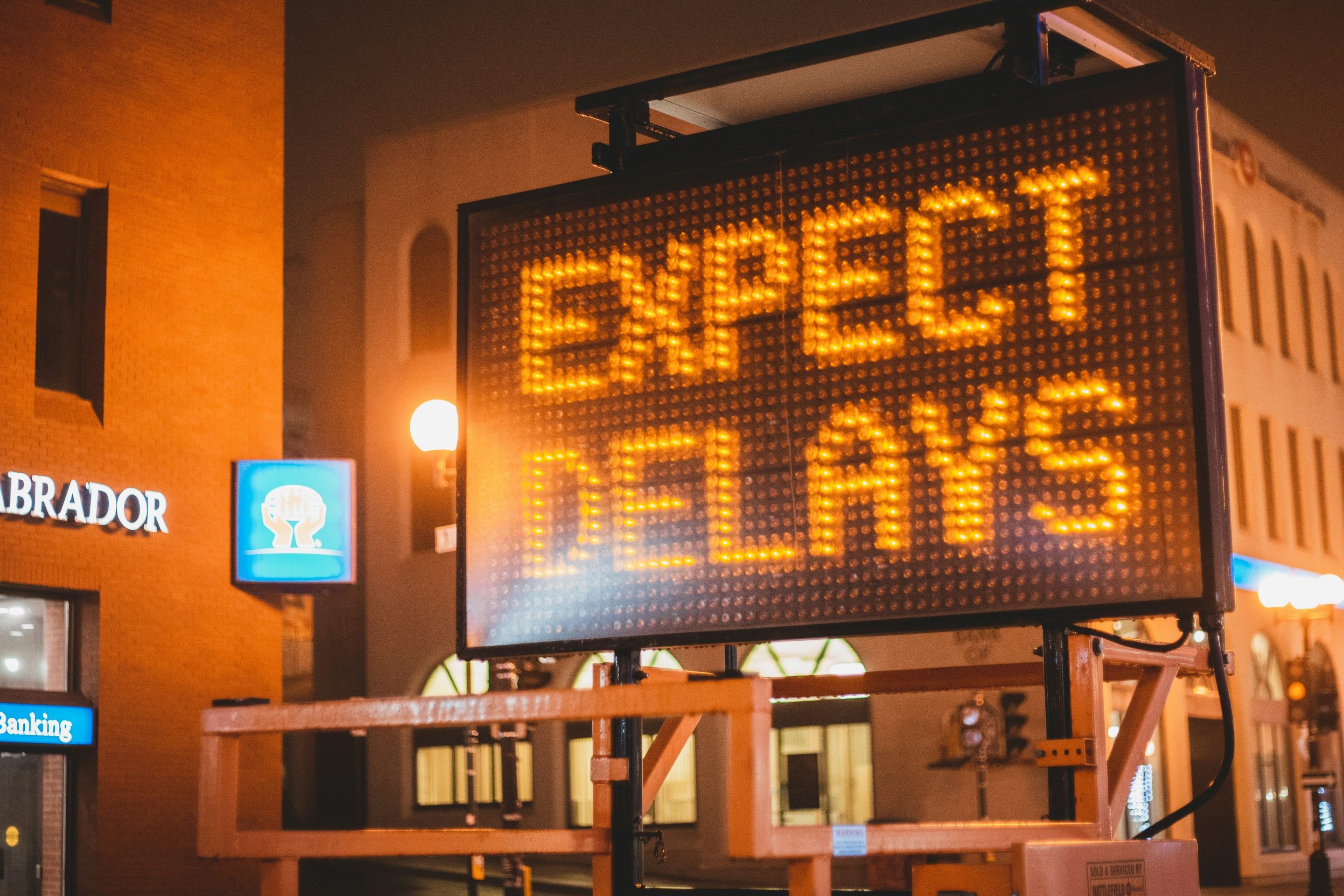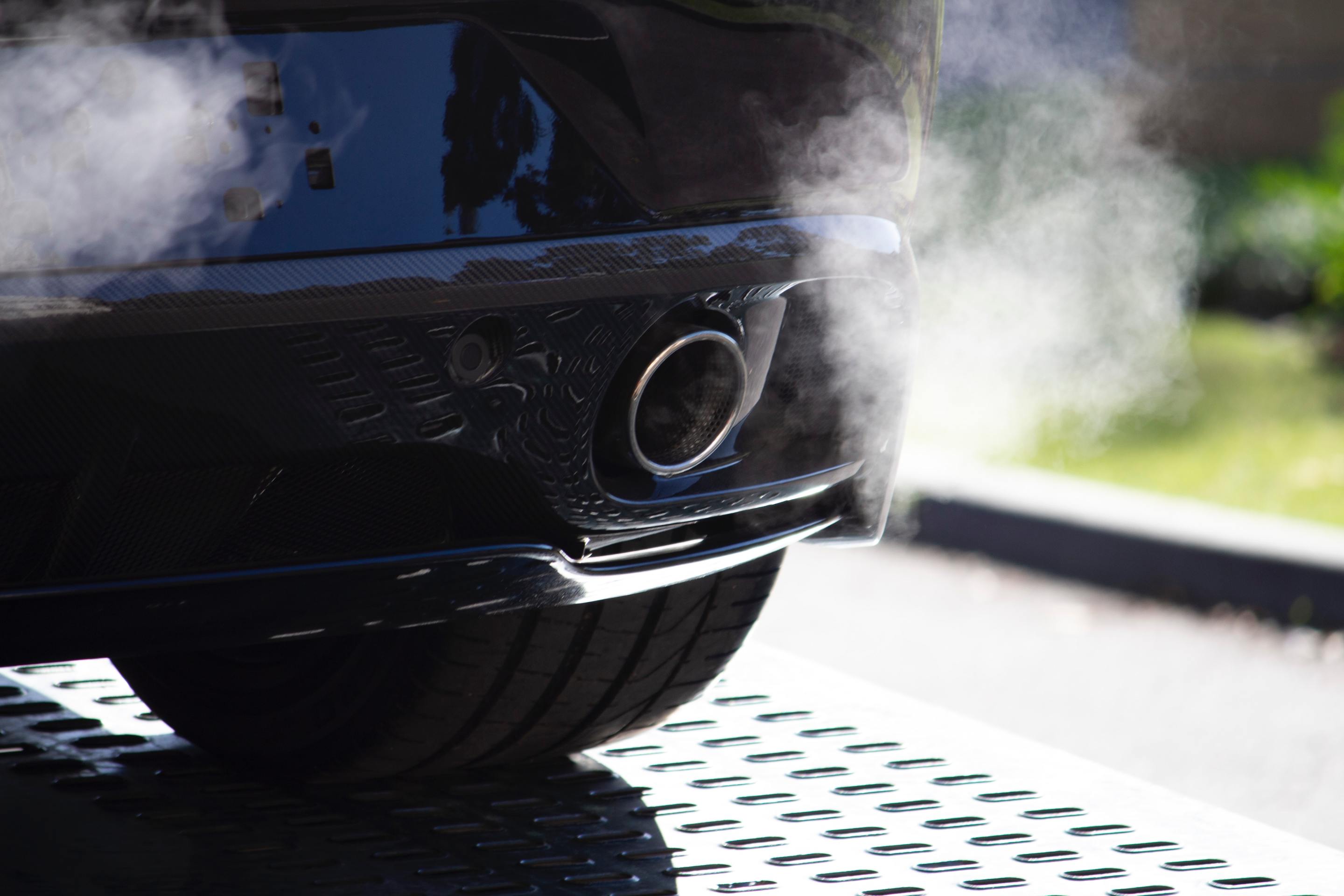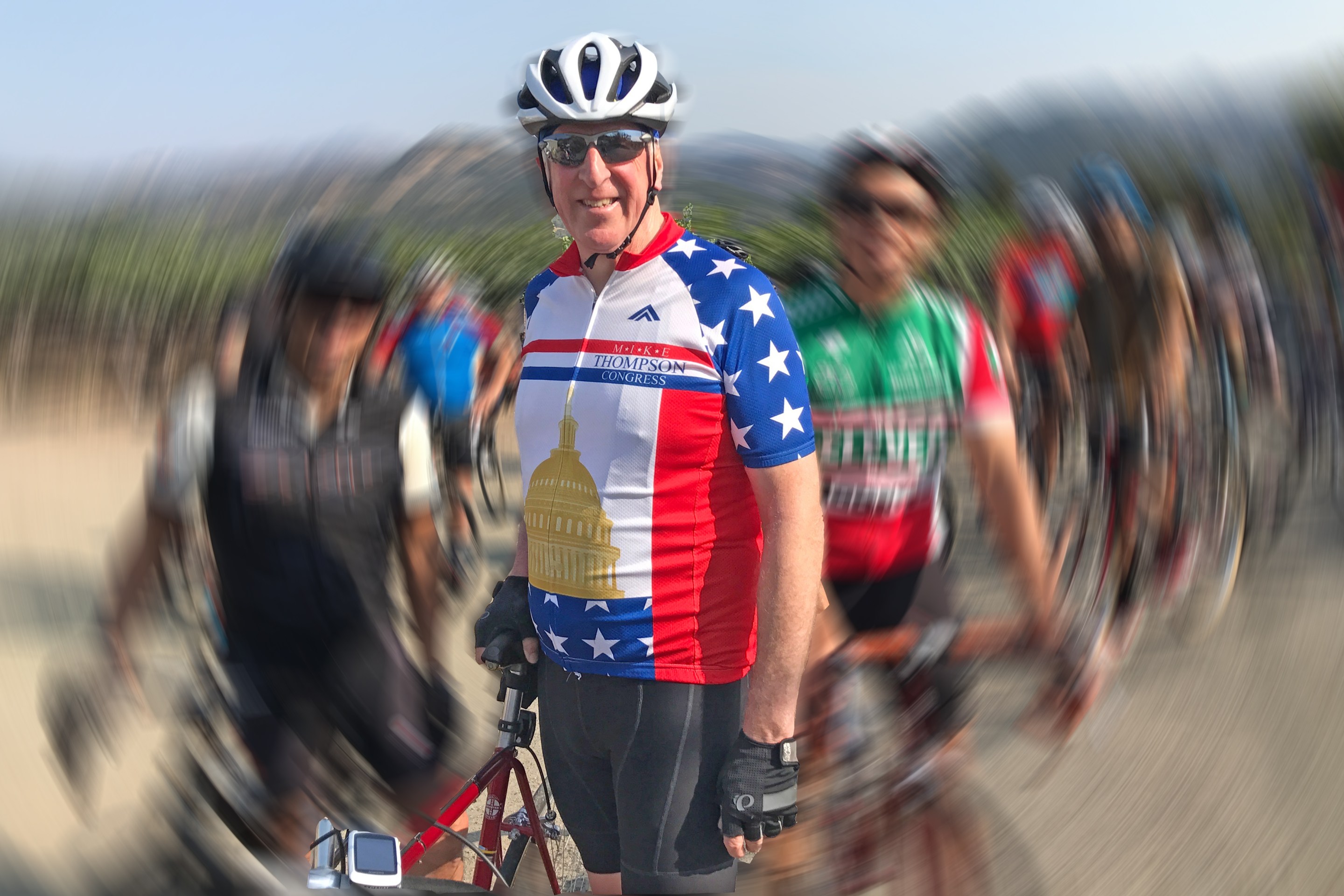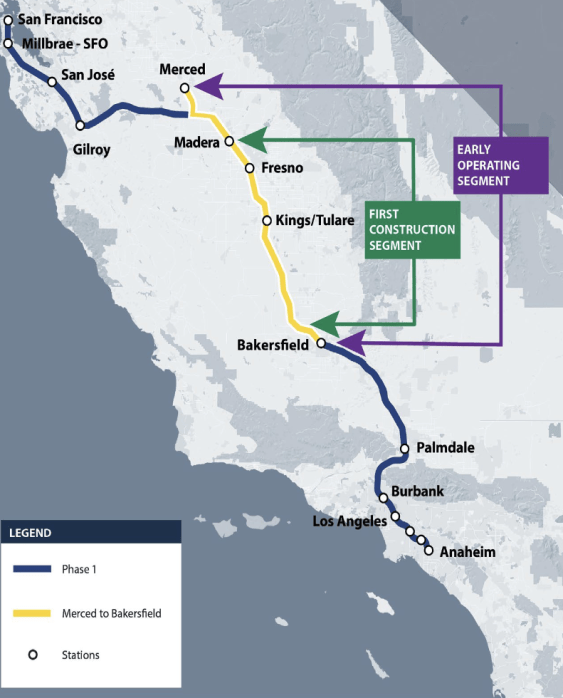The Stakes Are High for Smart Transpo Policy in These 6 Races for Governor
2:00 PM EST on November 4, 2014
Today, voters go to the polls to exercise their constitutional right to self-government -- if their state hasn’t disenfranchised them with onerous voter ID laws, that is, and if they can get motivated to turn out for a mid-term election. In 27 states, voters are choosing a governor. These elections are perhaps the most important in the country when it comes to transportation policy, because governors set the agenda for major infrastructure decisions and control the state DOTs that spend the lion's share of U.S. transportation funding.
Here’s a look at six close contests that will have major implications for transportation and development.
Maryland
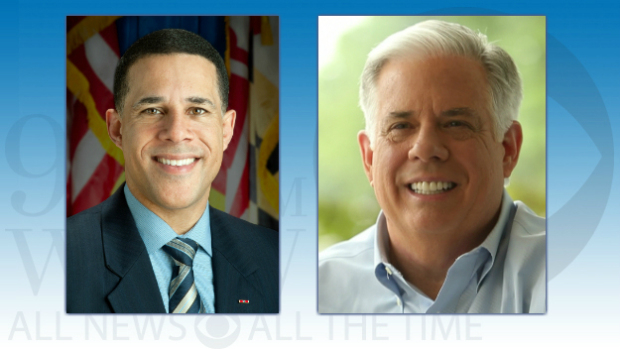
Lieutenant Governor Anthony Brown has served as number two in Governor Martin O’Malley’s pro-rail, smart-growth-minded administration for eight years. Republican challenger Larry Hogan runs a land brokerage and development firm that specializes in suburban greenfield strip malls and subdivisions. While Brown would continue O’Malley’s emphasis on transit expansion, including the planned 16-mile Purple Line linking key Maryland suburbs and the downtown Baltimore Red Line light rail, Hogan argues that the state should focus on its backlog of road projects instead of bothering with transit.
The state has allocated the money for the line, but according to Ben Ross of Maryland’s Action Committee for Transit, “there's nothing to stop them from changing their mind.” Advocates worry that Hogan’s car-centric transportation priorities would redirect all that money toward highways.
“The governor of Maryland has virtually absolute power over the budget,” Ross said in an email. “All the legislature can do is cut. So if Hogan takes the Purple Line out of the budget, no one else can put it in.”
Brown started off the campaign with a commanding lead over Hogan, but that lead has dwindled to almost nothing. The race is now a nail-biting toss-up.
Illinois
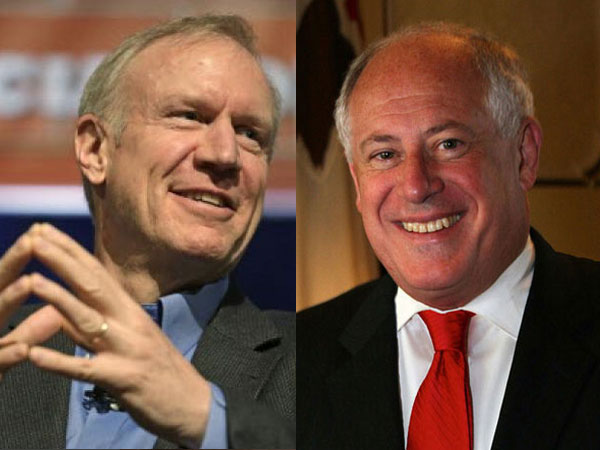
Governor Pat Quinn has said all the right things about complete streets and investing in transportation options that don't involve road widening, but his record is decidedly mixed, to put it charitably. Streetsblog Chicago wrote last week:
Yet under Quinn’s administration, the Illinois Department of Transportation has demonstrated that its priorities include widening existing roads, rather than bus rapid transit, congestion pricing, or the other options Active Trans outlined. IDOT has widened dozens of miles of roads throughout the suburbs, and even widened Harrison Street through the South Loop in 2012 — a move that the Chicago Department of Transportation partially reversed this year with a road diet and buffered bike lanes.
Quinn has also championed the expensive and unnecessary Illiana Tollway as his top priority for IDOT, thereby depriving all other priorities of crucial state funding.
Quinn has pledged to install 20 miles of protected bike lanes on state roads during his next term, which IDOT currently bans.
Despite Quinn’s imperfections, he's a known quantity. The same can't be said of Republican challenger Bruce Rauner, a venture capitalist who "makes no apologies for his success." Rauner is right there with Quinn on the Illiana, calling it "an important economic development engine."
That's about as specific as Rauner has gotten on any transportation issue, in a campaign that has remained deliberately vague while seeking to capitalize on anybody-but-Quinn voter sentiment.
Wisconsin
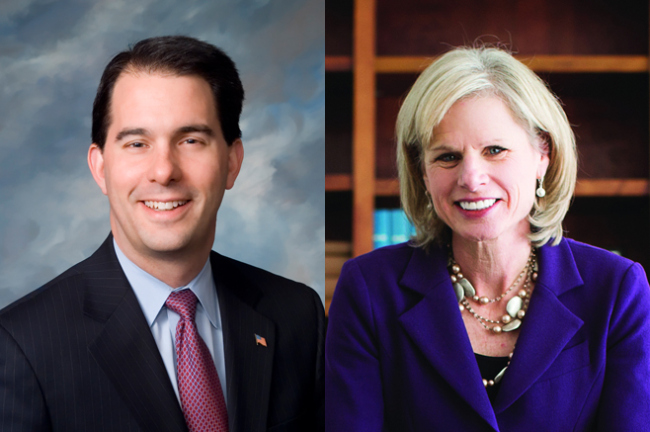
Here’s a delicious one. Governor Scott Walker has spent the last four years expanding highways like I-94, even as Wisconsin residents drive less, and cutting needed social programs to pay for his road-building bonanza. Meanwhile, he’s been hostile to any transportation options that don't involve driving. When he was first elected, he delighted his Tea Party supporters by rejecting high-speed rail money from the Obama administration.
Walker is being challenged by Mary Burke, a former executive at Trek Bicycle. Let that sink in for a moment.
Burke hasn’t been very forthcoming about her own thoughts about transportation. But she has cited WISPIRG reports criticizing Walker’s highway projects, and she's said she would scrutinize how much is being spent on major road projects and has vowed to prioritize projects based on “economic development and safety.”
Massachusetts
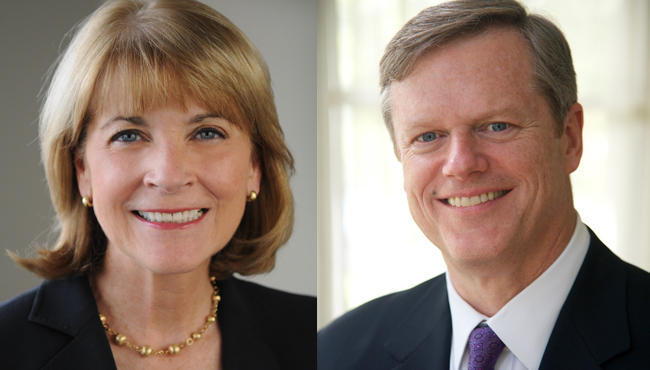
Democrat Martha Coakley responded to a candidate questionnaire from Transportation for Massachusetts and the Massachusetts Smart Growth Alliance with detailed answers, pledging concrete actions in support of MassDOT’s ambitious goals to increase transit ridership, biking, and walking. She wants to expand and improve transit, index the gas tax to inflation, build multi-modal transportation projects, and reform the state’s “outdated” zoning laws to encourage more smart growth and brownfield development. She named specific pieces of legislation she would support to achieve those goals, such as H1859, which would empower cities to build more affordable housing and make it harder to build sprawl.
Her opponent, Charlie Baker, was far more vague in his answers. Mostly he doesn’t want to spend money on transportation. He’s all for biking, walking, and transit, but “we cannot ignore that for many people, a car is the only way to get from an affordable place to live to their job,” he said.
Florida
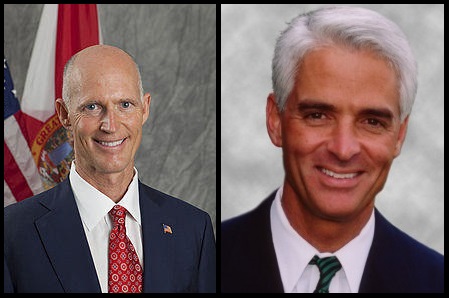
Here’s a weird one. And one of the closest races out there.
High-profile high-speed rail rejecter Rick Scott is running for re-election against Republican-turned-Independent-turned-Democrat Charlie Christ, who served as governor from 2007 to 2011.
Though Scott was no fan of the Obama adminstration’s rail plan, he has “cautiously” supported the (mostly) all-privately owned and operated All Aboard Florida plan -- a 125-mph train between Miami and Orlando with stops in Fort Lauderdale and West Palm Beach.
In a complete reversal of typical party positions, Crist opposes it. He hasn’t exactly said he’d can the project as governor, according to Next City’s Rachel Dovey, but he’s expressed “serious concerns” about it. Crist would have preferred Obama’s rail project and has indicated that as governor, he’d look to get back the money that Scott sent back four years ago.
Not only could this gubernatorial election affect the outcome of the rail project, the rail project could affect the outcome of the election. In a race that’s down to a fraction of a point -- Real Clear Politics currently shows Crist ahead by 0.4 points -- public sentiment about the rail line could swing the election.
A group calling itself Florida Not All Aboard has been opposing the project. Made up mostly of representatives from communities the line would pass through but not serve, the group hasn’t called for Scott’s ouster in so many words, but its outspoken protest of the project could be a factor.
Connecticut

As governor, Democrat Dan Malloy has supported the Hartford-New Britain busway and upgrades to the New Haven-Hartford-Springfield rail line. His proposal for a five-year transportation capital program, however, includes a big-ticket widening project for I-84 in Waterbury.
His Republican opponent, businessman Tom Foley, doesn't think Malloy has done enough to expand roads. At a recent transportation forum where the incumbent defended his record of transit investment, Foley attacked. "Any purposeful strategy to push people out of their cars and onto mass transit, I really don't think is going to work," he said.
One area where they seem to agree is their distaste for tolling roads. Foley goes so far as to say said he would consider tolls only as a means to reduce traffic congestion and not as a source of new revenue. So if tolling were implemented, he’d insist that gas taxes be lowered. “I do not support additional sources of revenue for the state of Connecticut,” he said -- somewhat astoundingly, when motorists drive 5.3 million automobiles over bridges known to be structurally deficient in his state every day [PDF].
What other races will you be watching tonight? We’ll be live-tweeting results from these races and the ballot initiatives we’re following @streetsblogusa.
Read More:
Stay in touch
Sign up for our free newsletter
More from Streetsblog USA
SEE IT: How Much (Or How Little) Driving is Going on in America’s Top Metros
Check it out: The lowest-mileage region isn't the one you'd think.
Monday’s Headlines Bring Another Setback
The Biden administration's new rule requiring states to report their greenhouse gas emissions from transportation was dealt another blow when the Senate voted to repeal it.
‘The Bike Is the Cure’: Meet New Congressional Bike Caucus Chair Mike Thompson
Meet the incoming co-chair of the congressional bike caucus — and learn more about how he's getting other legislators riding.
Calif. High-Speed Rail Takes a Step Towards Acquiring Trains
The contract calls for two prototype trainsets for testing to be delivered by 2028, and four trainsets to be used on the "early operating segment" between Merced and Bakersfield, ready between 2030 and 2033.
Friday’s Headlines Are Still Unsafe
Traffic deaths are declining for those ensconced in thousands of pounds of steel. For the rest of us, not so much.
